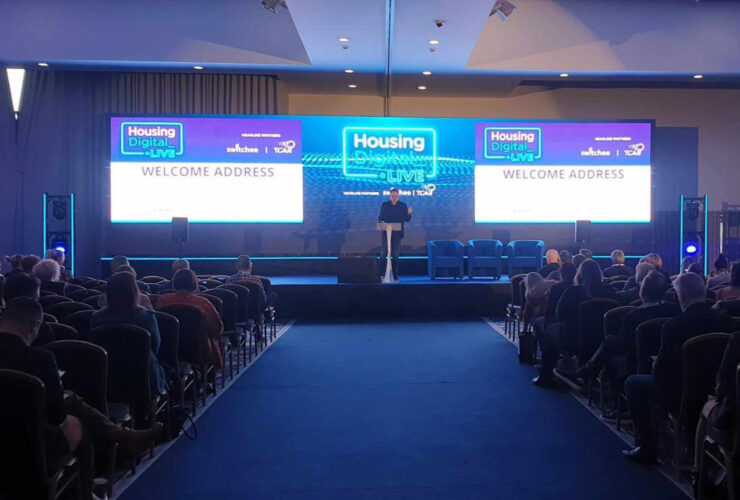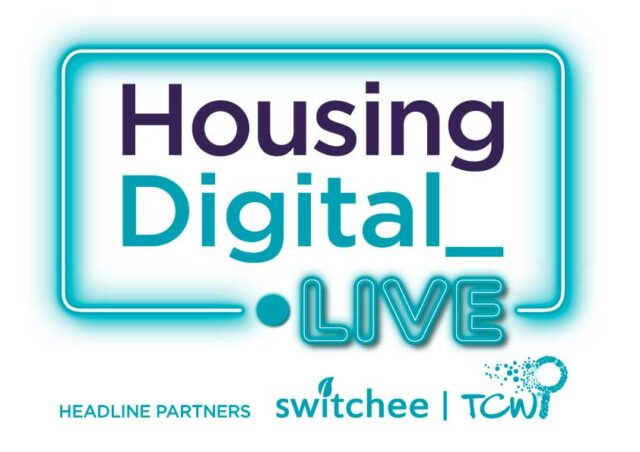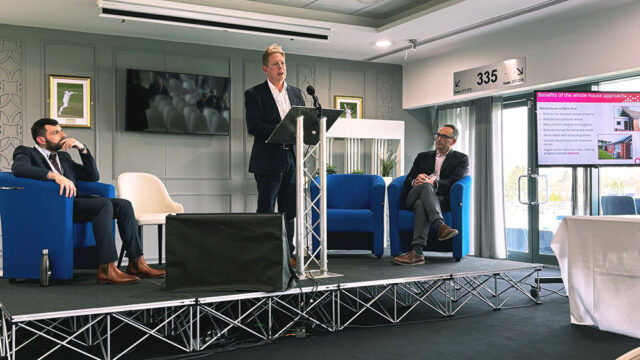
Housing Digital Live – My Key Takeaways
This week I attended day one of Housing Digital Live 2024, a conference at Edgbaston Stadium, Birmingham, which focuses on tech and innovation in the housing sector. I am new to the affordable housing industry after starting in my role as Marketing Manager for ARK Consultancy in January. I was keen to attend so that I could learn more, find out what the biggest challenges and issues in the sector are, and take a look at fellow organisations and how they market themselves.

I attended panels on Knowledge and Information Management, Data, Digital Twins, AI, and Net Zero. My biggest take away from the event is that stock condition, repairs & maintenance, and safety are amongst the biggest challenges facing the industry. I was already aware of the seriousness of these challenges, even before joining ARK I was of course aware of the Grenfell Tower disaster and the case of Awaab Ishak, who tragically died due to exposure to damp & mould.
It’s clear that the sector is working to prevent a repetition of these terrible events through improving it’s understanding of the condition of properties, and its handling of repairs and maintenance. Kathryn Eyre, from the Housing Ombudsman spoke about knowledge and information management, and how it is the closest thing to a ‘silver bullet’ for social housing. By this she means that it is vital that HA’s are prioritising recording, managing, and sharing data. Poor communication between departments, contractors and residents leads to inefficiencies due to missed appointments or a failure to communicate important information. One particular example stood out where a resident with autistic children had requested that contractors did not turn up unannounced (something that shouldn’t happen regardless of the presence of children with additional needs.) The message was not communicated and sure enough, contractors turned up at the address to carry out work and were turned away. It appears there are far too many occurrences like this which leads to millions of pounds of lost time and work.
The access to information scheme, or ATIS, forms part of the Social Housing Regulation Act but many HA’s aren’t suitably prepared for this, and a rapid improvement in knowledge and information management, along with communication, is needed.
Artificial Intelligence and Digital Twins
Being a technology nerd, and keen to keep up with the rapidly developing world of AI, I attended panels on Digital Twins and AI use cases. ‘Meeting the requirements of the Building Safety Regulator; Enter the Digital Twin’, which was an interesting panel where I learned about the strides they are taking to use this technology to unravel the ‘golden thread’ of information. There are major skills gaps in this technology however and barriers to progress are cultural as well as financial.
Carolina Padovezi De Oliveira of Manningham Housing Association and Peter Lunio of Golden Marzipan spoke about AI and gave excellent use cases, with some really interesting examples of how AI generated videos could break language barriers and vastly improve HA’s abilities to deliver important messaging to their residents. AI is currently a hot topic in virtually every industry and I’m always eager to learn how it can be put to use for good.

Unlocking Net Zero
My final panel, ‘Rising to the challenge of Net Zero in housing’ included a great presentation from Neil Waite of Net Zero collective, and looked at the £3.8bn Social Housing Decarbonisation Fund (SHDF) and progress towards the Government’s target of Net Zero by 2050.
As a qualified domestic energy assessor, I was interested to hear about Net Zero Collective’s ‘Whole House’ SHDF scheme. This is where instead of only using the ‘fabric first’ approach to maximise the dwelling’s suitability for low carbon heating in the future, a property is completely revamped to be as energy efficient as possible, including all necessary insulation improvements, replacement of heating methods and energy generation to include solar panels, ground/air source heating, battery and thermal storage and heat recovery.
While the whole house method takes longer and involves a lot of coordination and project management, ultimately the cost per dwelling and disruption to the resident is reduced. A successful whole-house project was completed on a development of 63 bungalows in Salford which demonstrates what is possible.
Housing Digital Live 2024 was a great showcase on innovation and tech in the housing sector which is driving forward improvements to residents’ homes.
By Peter Evans, Marketing Manager, ARK
News & Insights
Read the latest housing sector news, blogs, and commentary from ARK.

Building Safety
By Luke Beard ·The deadline for registering an existing higher risk building (HRB) with the regulator and submitting the required key building information …

Are you ready for the Supported Housing (Regulatory Oversight) Act 2023?
By Nick Sedgwick ·If you are a supported housing provider, you need to be aware of the new regulations that are about to …

International Women’s Day 2024
By Chris Seeley ·The theme of International Women’s Day 2024 is the question ‘What does it mean to truly inspire inclusion?’, we asked our …
Subscribe to our newsletters for the latest industry insights
Our newsletters and reports will keep you updated on topical issues from the sector as well as what’s happening at ARK.
